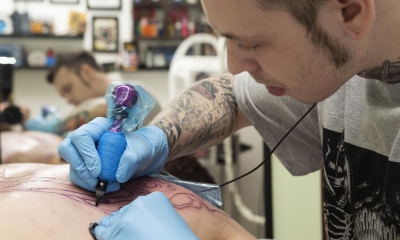
The following is an overview of important legislation that might be particularly relevant to your art gallery business.
What licences does an art gallery need?
There are no licensing requirements relating specifically to gallery owners.
You should, however, be aware of the following:
- if background music is played in the gallery you will probably need a Music Licence from PPL PRS Ltd for the public use of copyright music
- if credit facilities are offered to consumers then you will need consumer credit authorisation from the Financial Conduct Authority (FCA)
If you intend to have a café or restaurant on your premises then you'll need to register as a food business with your local environmental health department.
Money laundering
Money Laundering Regulations require 'high value dealers' who transact sums of 10,000 euros or more in cash as part of their business to register with HM Revenue & Customs (HMRC) and to keep certain records relating to all such transactions. There is more information available on the Gov.uk website.
Licensing of second-hand dealers
Local authorities in Scotland require dealers in second-hand goods (which could include artworks that are not being sold for the first time by the artist) to obtain a licence or registration to operate. This applies unless dealing in second-hand goods is only incidental to the main business activity. Elsewhere in the UK, some local authorities license or register businesses (with some specific exceptions) where second-hand dealing is the main or a significant part of the business and is not just incidental. If you are in any doubt as to whether second-hand dealer licensing may apply to your business, contact your local authority trading standards department for guidance.
Artists' resale rights
Legislation exists in the UK to protect artists' resale rights. If your gallery resells a picture or artifact, then a royalty may be due to the original artist (or to their heirs). It's your responsibility to pay the royalty fee to a collecting society such as the Design and Artists Copyright Society (DACS) or the Artists Collecting Society (ACS). More information about how the resale rights scheme works is available on the DACS and ACS websites.
Copyright legislation
As you will be dealing with intellectual property - other people's and possibly your own - you should be familiar with the requirements of copyright legislation. This is particularly important if you do things like make reproductions of other artists' originals for prints, posters and cards. You can find out more about copyright law on the Intellectual Property Office (IPO) section of the Gov.uk website.
Retailing and consumer protection
There is a wide range of legislation that applies to retail outlets and that protects the interests of the consumer. For example, goods and services must not be misleadingly described and the retail price of goods must be clearly displayed. You will be responsible for making sure that all goods or services are fit for their intended purpose and of satisfactory quality.
Detailed information for businesses about various aspects of consumer protection legislation is available on the Trading Standards Business Companion website. Information and guidance are also available on the Gov.uk website. Your local trading standards department should also be able to advise you if you have a specific query.
Consumer credit
If you offer credit facilities to consumers you must obtain consumer credit authorisation from the Financial Conduct Authority (FCA) and comply with consumer credit legislation. Information about consumer credit authorisation and legislation is available on the FCA website.
Carrier bag charge
A minimum 10p charge applies for single-use carrier bags in England (other rules apply in Wales, Scotland and Northern Ireland). You can get detailed guidance from the GOV.UK website.
Health & Safety, fire
You must comply with workplace health and safety and fire safety legislation.
Employment legislation
Anyone employing staff must comply with employment legislation. Important areas of legislation include recruitment, employment contracts, pay, working hours, holidays, employment policies, sickness, maternity, paternity, discrimination, discipline, grievances, dismissals, redundancies and employment tribunals.
Insurance for an art gallery
Contact an insurer or insurance broker and explain exactly how your business will operate - they will then explain what insurance cover you must have by law, and other cover you should consider. This might include:
- employer's liability
- public liability
- premises, premises contents and stock (including shoplifting)
- goods in transit (being collected or delivered)
- cash
- defective title cover
- damage to art works - including items that are being framed, restored or worked on in some other way
- cover for exhibitions
- cover for items at auction
- business interruption
- motor insurance (for delivery vehicles)
Some insurers specialise in providing cover for art trade businesses and can offer a package of insurance that meets the specific needs of the industry. The Fine Art Trade Guild has negotiated special rates on business insurance cover for its members.



